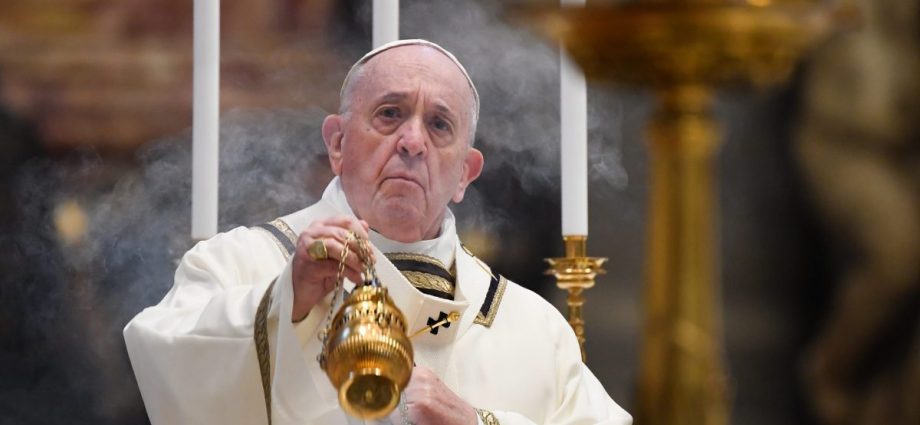
Anyone concerned about the prospects for peace around the world should pay attention to the upcoming Congress of Leaders of World and Traditional Religions to be held on September 14-15 in Nur-Sultan, Kazakhstan. One of the aims of the meeting is to reintroduce the language of peace and reconciliation to a world shattered by conflict and tragedy.
To leave diplomacy in the hands of hotheads and ideologues who believe that “it’s our way or the highway” or “to negotiate is a sign of weakness” is madness. This congress of religious leaders aims to help bring international politics back to its senses.
What to expect
This will be the seventh Congress of Leaders of World and Traditional Religions, held in Kazakhstan’s capital since 2003. It will shine a spotlight on the role of religion in helping to defuse political, economic, and military confrontations among cultures and states.
In other words, smart statecraft invariably entails compromise, because it recognizes the need to forge understanding among opposing states, confessions, and cultures. That’s the way grown-ups behave; why shouldn’t politicians and diplomats?
Kazakhstan and many of its Central Asian neighbors have a mature understanding of this dynamic.
Religions anchored in God, human dignity, and reason (supported by science) tend to deconflict conflict situations, but this is harder to achieve if they are instrumentalized, manipulated, or otherwise seduced into serving as the handmaid of ideology and extremism. That will be one of the core messages of next week’s confab.
A better than average opportunity
Influential religious leaders will attend the congress, including Pope Francis, Patriarch Theophilos III of Jerusalem, Sephardic Chief Rabbi of Israel Yitzhak Yosef, the Grand Imam of al-Azhar Ahmed Mohamed Ahmed El-Tayeb, and the head of the Spiritual Administration of Muslims of the Russian Federation, Mufti Ravil Gaynutdin, along with Hindu, Buddhist, and many other top clerics.
And there will be cardinals and bishops galore. There’s something to be said for religious leaders from around the world assembling in one place and strategizing on ways to lower the temperature and promote unity.
More than a garden party
The congress’ organizers say they want to avoid a clerical gabfest or a lavish garden party. Rather, it aims to address (mostly indirectly) conflicts across the globe, including those caused by utopian fantasies, economic oppression, food insecurity, disease and forced migration.
The congress is expected to go beyond promoting “traditional” morals and ethics across the globe, which is already happening. Instead, it will produce a series of well-founded statements and propose concrete steps to be rolled out over time through academic institutions that are not anti-theist and understand the science behind fundamental cosmological questions.
In this context, the following initiatives would seem appropriate:
- Articulate in non-theological terms that natural-law principles, recognized by Abrahamic and other religious traditions, are the common language of productive dialogue. It follows, therefore, that the congress must reject political theories promoted by modern-day followers of Machiavelli and Hobbes, who argue that the best way to secure a nation’s interests and the common good is through the barrel of a gun or the cruel subjection of one’s opponents by all possible means.
- Challenge the “culture of death” orthodoxy, which is pervasive in international affairs. This will be easiest for delegates who see their spiritual flocks not as cogs in the wheel of global finance and industry, but as human beings possessed of dignity and endowed with certain inalienable rights derived from God.
- Develop a series of well-thought-out statements (in laymen’s terms) that demonstrate (philosophically) the rational basis for the existence of God, recognize the compatibility of God and science, reinforce the scientific basis of human biology, and support the family as a good in itself.
- Define the meaning of the “common good” in the context of geo-political and geo-economic realities by linking sustainable economic development and entrepreneurship (not neoliberal ideology) with traditional morals and ethics, freedom of religion and mutual respect within a multipolar world and independent sovereign states.
By way of follow-up, the delegates should form centers of political and economic power and pressure educational establishments and the mass media across the globe to come to their senses. Toward this end, participants in the congress could agree to hold “breakout” meetings in, for example, Bogotá, Beirut, Boston, Cairo, Delhi, Nairobi, Rome, Sofia and Sydney. Why not?
It would behoove all of us to pay attention to what will come out of the Congress of Leaders of World and Traditional Religions in Nur-Sultan. Perhaps foreign ministries – and not a few clerics – around the world will learn something useful.

